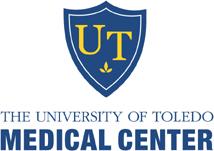A PAIR OF NEWLY APPROVED VACCINES will be available this fall to protect older adults against the respiratory syncytial virus, a respiratory infection that surged last year alongside COVID-19 and played a role in straining hospital capacity across many parts of the country.
Though usually mild, infections caused by RSV are more worrisome in infants, adults aged 65 and older, and those with weak immune systems or chronic heart and lung conditions.
The RSV vaccines will be available this fall to those age 60 and older. “Almost everyone is going to be infected with RSV by age two. It’s a very, very common virus, and people can get infected with this virus more than once,” said Dr. Joan Duggan, an infectious disease specialist with The University of Toledo Medical Center. “For most healthy adults, RSV acts like a cold. It’s a mild illness that you’re over in a week or so. But it can be dangerous—particularly in older adults, infants, or immunocompromised patients.”
The U.S. Centers for Disease Control and Prevention (CDC) estimates the virus leads to between 60,000 and 160,000 hospitalizations and 6,000 to 10,000 deaths annually among those aged 65 and older.
The CDC stopped short of a blanket recommendation that all adults eligible for the RSV vaccine should receive one; however, experts say it’s a good thing to discuss with your doctor. “Like all the commercials say, talk to your doctor. We can have a conversation with you about your risk for serious illness and the benefits of vaccination,” Duggan said. “It’s wonderful to have this vaccine as an option, and your doctor can help you decide if it makes sense for you to get vaccinated.”
That can also be the starting point, Duggan said, of a comprehensive vaccine review. “Do you need a flu shot, do you need a COVID-19 update, is your tetanus shot up to date?” she said. “You don’t want the time to realize you need a tetanus booster to be Christmas Eve when you get a nasty cut while moving things in the garage. The fall is a great time to talk with your doctor and make sure you are up to date with all your recommended vaccines.”
The CDC recommends everyone aged six months and older get an annual influenza vaccine. The tetanus, diphtheria, and pertussis—also known as Tdap—vaccine is recommended every 10 years.
An updated COVID-19 vaccine is expected to be rolled out this fall, but CDC has yet to issue specific recommendations for who should receive it. In the meantime, the CDC says everyone six and older is up to date when they have received one updated Pfizer-BioNTech or Moderna bivalent vaccine. People age 65 and up may get one additional dose of a COVID-19 vaccine after at least four months have passed since their first dose of the current bivalent version.
Another vaccine for adults aged 50 and older to consider is the recombinant zoster vaccine, which prevents shingles. Caused by the same virus that brings on chickenpox, shingles is a painful, itchy rash that can take up to a month to fully resolve. Anyone who has had chickenpox is at risk of getting shingles later in life, with about one in three people in the United States having shingles in their lifetime.
In addition to the rash, shingles can lead to long-term nerve pain. More rarely, it can cause vision loss, pneumonia, and brain inflammation. The risk for serious complications increases with age. The two-dose course is more than 90% effective at preventing shingles.
The RSV vaccines, which were approved by the FDA in May, have been decades in the making. “It’s exciting that we finally have an RSV vaccine. This has been a long time coming,” Duggan said. “Again, it’s important you talk to your doctor about this, but for those who choose to get vaccinated, it’s going to give them really good protection against serious illness.”
Tyrel Linkhorn is a communications specialist at The University of Toledo. ✲


